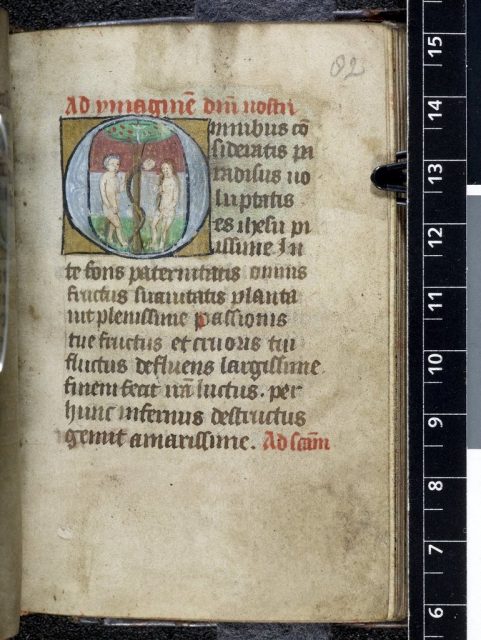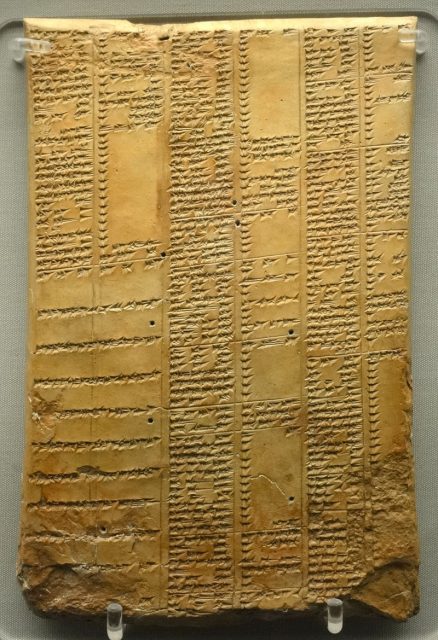Centuries ago, especially before the advent of printing, producing just one copy of a book was painstaking. The process required a tremendous amount of time, a lot of patience, and superb attention to detail. The meticulous work was done by scribes manually. The longer the book, the more months it took to have a book completed, if not years.
To finish the book sometimes came at the cost of the scribe’s health. Their sight would begin to fail, their body to ache and hurt from sitting.

Perhaps surprisingly to the modern day reader, at the end of the book, medieval scribes would pen something like this:
“Hanging will do
For him who steals you”
Or, something more elaborate:
“If anyone takes away this book, let him die the death; let him be fried in a pan; let the falling sickness and fever seize him; let him be broken on the wheel, and hanged. Amen.”

The first two lines can be found in a book dated to the year 1461. The second and longer junction, taken from the end of a Bible copy with German provenance, was scribed around the year 1172. Both exemplify medieval book curses, inserted by the copyist to assure that the product of their hard work will not go in vain. That it will not end up in the hands of thieves.
Back in medieval days, books held a greater value as they were so rare. Not only was it an extensive and exhausting process to replicate a copy of the Bible, for example, the process was also costly. Even the more prestigious institutions kept a limited number of volumes at their premises. So, if someone went after stealing a book, the loss was truly painful.

But protecting the book with curses was something as a remedy to this issue. Scribes used the one most potent weapon they had at hands — words. The curses, addressed to potential thieves, almost always promised the most dreadful way to die if you stole a book. If the thief was superstitious, the curse actually did scare them away. Depending how they were worded, curses also worked against damage being inflicted on the book, such as deliberately ripping out a page.
More accounts suggest that inscribing curses has been practiced since bookkeeping commenced. The earliest examples have been deciphered in Assyrian tablets from the 7th century BC. At the library of Nineveh, one of the earliest known libraries on earth, under King Ashurbanipal, a plenitude of tablets included such expletive measures for protection.

Through the curse, the king evokes a major Mesopotamian deity — Ashur — to deliver punishment on those who dare steal the tablets. Here’s a slice of the curse:
“Whosoever shall carry off this tablet, or shall inscribe his name on it, side by side with mine own, may Ashur and Belit overthrow him in wrath and anger, and may they destroy his name and posterity in the land.”

However, the majority of book curses that have survived to modern times, originate from Middle Age books. American writer Marc Drogin published the very first volume that documents book curses in 1983. His book is entitled Anathema! Medieval Scribes and the History of Book Curses.
One example Drogin lists in his book, and as reported by Medievalists.net, comes from a 13th century book stored at the Vatican library:
“The finished book before you lies;
This humble scribe don’t criticize.
Whoever takes away this book
May he never on Christ look
Whoever to steal this volume durst
May he be killed as one accursed.
Whoever to steal this volume tries
Out with his eyes, out with his eyes!”
According to another book dated to the 15th century, the French would have wished the following for would-be thieves:
“Whoever steals this book
Will hang on a gallows in Paris
And, if he isn’t hung, he’ll drown.
And, if he doesn’t drown, he’ll roast,
And, if he doesn’t roast, a worse end will befall him.”
Even juicier, an example from the early 16th century:
“Whoever steals this Book of Prayer
May he be ripped apart by swine,
His heart be splintered, this I swear,
And his body dragged along the Rhine.”
Many more examples illustrate the risks book thieves faced if they were caught for their wrongdoing. Exclusion from the church was guaranteed, as was in many cases public execution.
Other than this, in medieval Europe, people devised various inventions to protect books. Chained libraries are one popular example. Books were chained to the shelves so that readers were unable to take them outside the library.
Read another story from us: Comically Bizarre Old English Insults in Video
They were only able to check the book contents on the spot. Chain libraries were used until the 18th century, however, since this method to secure the library contents was expensive, only the more prized copies were protected that way.
But a book curse — people have been always able to write one for free.
